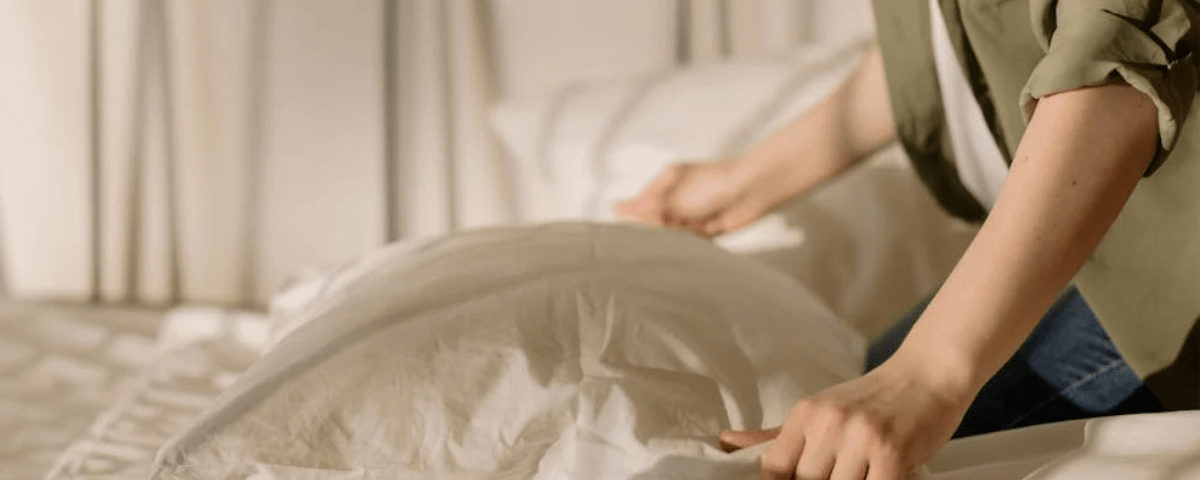Sleep is a wonderful time in our life. While sleeping, our body shuts down from physical activities, our brain is unconscious. We dream about unique and fascinating things. While we sleep, various psychological and neurological processes occur to support our overall health and well-being. Sleep is the time when our muscles are repaired, and tissues are regenerated. Our body produces cytokines which help regulate our immune responses and defend us against illnesses.
Did you know, that according to sleep statistics, 50-70 million adults in the US are affected by sleep deprivation. About 30% of adults have symptoms of Insomnia with 10% having insomnia that affects their daily life.
Do you ever find yourself amidst continuous thought while trying your best to sleep even after a busy and tiring day? Do you wake up suddenly from your sleep way before your alarm buzzes? It might be that you are sleep-deprived. Let’s dive deep into the tips and tricks we can implement to maintain better sleep hygiene.
Table of Contents
Understanding Sleep Hygiene
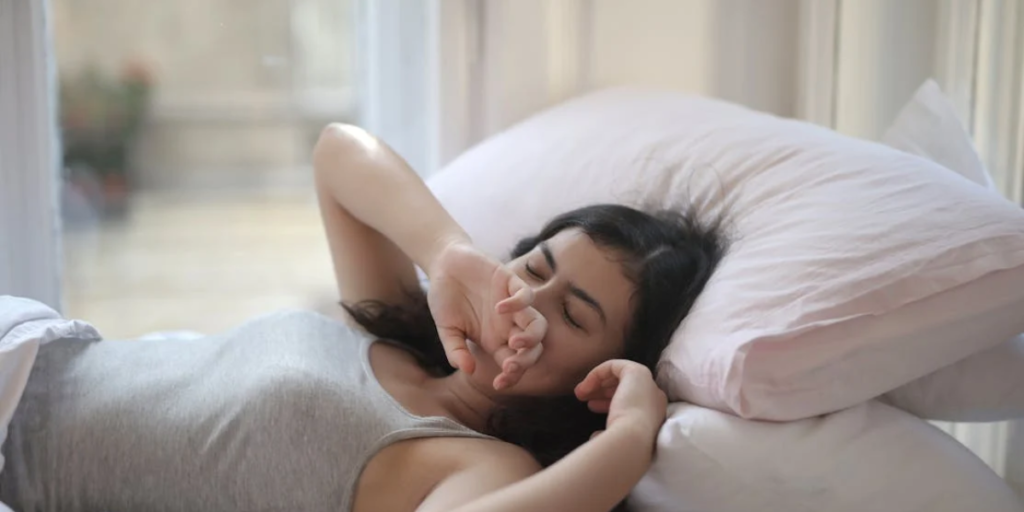
Sleep Hygiene refers to healthy habits, behaviors, and practices that help you get sound sleep. A healthy hygiene routine can help individuals suffering from Insomnia, Sleep apnea, or Hypersomnolence get into a healthy sleeping pattern by promoting the implementation of good habits and the elimination of bad habits.
It is important to understand that our sleeping time is directly impacted by the activities and habits we follow during our waking time. Some of our habits are built over years and some of the practices we might be following without knowing how it indirectly impacts our sleep schedule. Our poor sleep hygiene could be directly interlinked with our bad habits and a few external factors such as a bad mattress, poor diet, extremely busy schedule, and health issues.
What Are the Benefits of Adapting Sleep Hygiene?
Maintaining sleep hygiene practices that suit your lifestyle can bring an overall improvement in your physical health and mental health. Below are some benefits that we should look into.
Improved Cognitive Functions
Adequate sleep enhances cognitive functions including better concentration, memory span, and problem-solving skills. It also enhances creativity and promotes clear thinking.
Emotional Wellbeing
It is known that during sleep our body resets and undergoes Rapid Eye Movement (REM). During REM, the brain processes emotional experiences and memories. People who get enough sleep tend to have better mood control and lower levels of stress and anxiety.
Improved Physical Performance
Getting enough sleep promotes bone and muscle relaxation resulting in improvement in functioning. Our muscles release stiffness and any tension letting it get rid of all the tiredness during the day. Our energy level boosts leading to better athletic performance.
Enhanced Immune System
Adequate sleep helps regulate the production and activity of immune cells including T cells, and B cells which are the key players of the adaptive immune response and are responsible for fighting infections and illnesses.
Better Quality of Life
People who enjoy quality sleep enjoy life better. With more energy, more enthusiasm, and enhanced cognitive functions they can excel in their field and build more resistance to obstacles.
What Happens When You Do Not Get Enough Sleep?
Trouble sleeping can be bad for physical and mental health. It causes a lack of energy, reduced attention span, reduced sex drive, excessive sleepiness during the daytime, and other mood changes. When this becomes a habit, it leads to various sleep diseases and illnesses. Before getting to that we must know how much sleep our body needs.
According to a study conducted by Central Disease Control, we can refer to the below graph with recommended sleep hours for respective age groups. A habit of getting sleep less than the recommended hours can lead to sleep disorders.
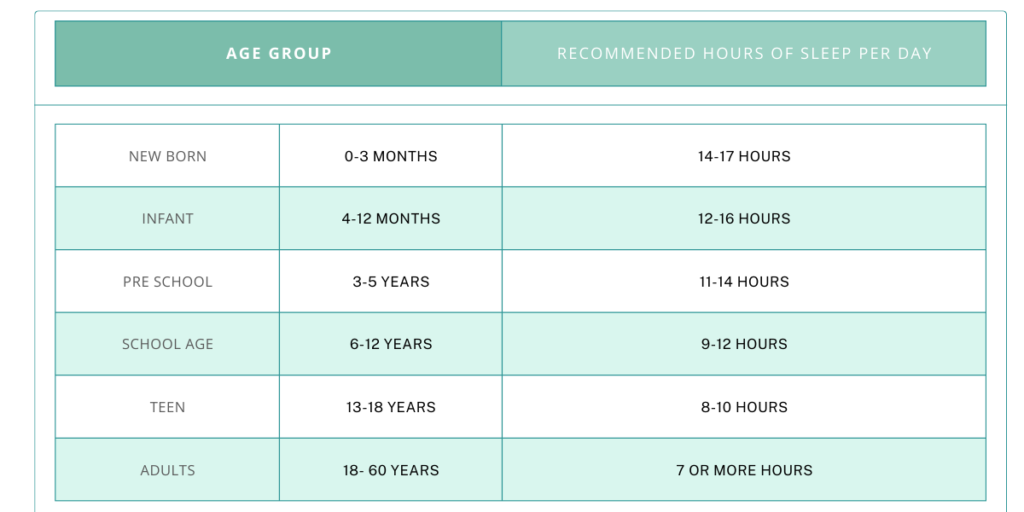
Sleep disorders are also called sleep-wake disorders. The most common sleep disorders are:
Insomnia Disorder
Insomnia is experienced most commonly among adults. It affects roughly one-third of adults. It is characterized by difficulty falling asleep and staying asleep. Even when individuals with Insomnia do manage to sleep, they often wake up feeling unrefreshed, and unsatisfied with the quantity of sleep.
Treatment for Insomnia may involve addressing underlying factors contributing to sleep difficulties, behavioral and lifestyle changes, and using cognitive behavioral therapy for insomnia which is the first-line treatment for chronic Insomnia.
Sleep Apnea

Obstructive Sleep Apnea affects 10-40% of the general population. This disorder is characterized by pauses in breathing and swallowing breaths during sleep. Sleep apnea can be of three types.
- Obstructive Sleep Apnea (OSA)– This is the most common type of sleep disorder. This disorder involves the muscle at the back of the throat being excessively relaxed during sleep causing airways to collapse or become blocked. As a result, breathing is interrupted during sleep. The most common symptoms of OSA are loud snoring and frequent awakening due to breathing issues.
- Central Sleep Apnea (CSA)- CSA is related to a dysfunction in the central nervous system. Unlike OSA, people with CSA may experience pauses in breathing without the associated snoring. These pauses are often longer and more frequent than those seen in OSA.
- Mixed Sleep Apnea (MSA)- This is also known as Complex sleep apnea. Mixed sleep apnea is the combination of both OSA and CSA. Mixed sleep apnea is less common than the above two and it may require specialized treatment.
Hypersomnolence
Hypersomnolence is also known as Hypersomnia. The symptoms are feeling excessive sleep despite getting adequate sleep. It is different than not having adequate sleep. approximately 5-10% of adults face hypersomnia.
The few symptoms that include Hypersomnia-
- Excessive daytime sleepiness
- Difficulty waking up in the morning
- Difficulty concentrating
- Anxiety and depression
- Headaches
Narcolepsy
Narcolepsy is a chronic neurologic disorder involving falling asleep multiple times a day. It also accompanies severe symptoms such as sleep paralysis, hallucinations, and cataplexy. While the exact cause of Narcolepsy has not been discovered it is believed that a combination of genetic, environmental, and autoimmune factors may contribute to Narcolepsy.
To diagnose Narcolepsy, a sleep specialist may conduct a series of tests such as a sleep study and Multiple Sleep Latency (MSLT).
10 Simple Steps to Enhance Sleep Hygiene
We have many routines, schedules, and calendar setups for our work, daily meetings, events, occasions, and overall waking time. But when it comes to our sleep time, we are more than careless. After a continuation of such negligence simply closing our eyes and getting on bed does not do the work for our brain.
Adapting Sleep Hygiene can be life-changing. It improves our physical and mental health during sleep hours and enhances our performance in almost all areas during waking hours. Here are some simple sleep hygiene techniques we can implement for longevity and a fulfilling life.
- Keep Electronic Devices Outside the Walls
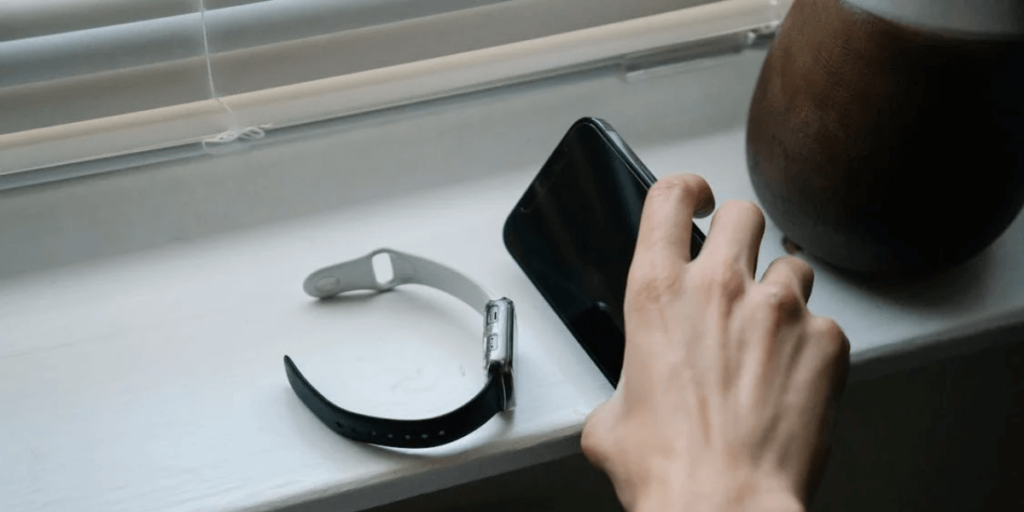
Our devices have now become our best friends. We take them along everywhere we go and the bedroom is no different. However, the blue light emitted from these devices such as smartphones, computers, tablets and even watching television can suppress the melatonin production in our body.
Blue light can trick our brain into thinking it’s still daytime resulting in sleep disturbances. It is always advised to keep any electronic devices out of the bedroom. Worried about the alarm? Switching to a table clock could be a better trade to get that sweet sleep. If you are somehow unable to get your devices aside or tend to use them excessively, you may consider doing Digital Detox.
2. A Relaxing Bed Time Routine for Sound Sleep
A relaxing bedtime routine can help you let go of any burden or worry from the day. Keeping consistent with a routine that helps you get prepared for sleep helps your body recognize that it is time to shut down from excessive thinking or worrying.
You can adapt to any of these habits
- Taking a warm bath which can relax you with muscle stiffness
- Reading a book that will narrow down your concentration
- A gentle meditation that helps you calm your mind
- Light stretches or massage
3. Regular Physical Activity

A simple habit of walking a few hundred steps a day or doing yoga for as little as 20 to 30 minutes can keep the body active during the day. Physical activities regulate the body’s energy level and help promote blood flow to all the areas of the body.
Exercise in the late afternoon or right before sleep should be avoided as it can keep the energy level high making it difficult to fall asleep.
4. Limit Meal and Caffeine Intake
Any large meal right before bed or late evening should be avoided. Large meals or meals that take longer to digest such as Meat, dairy, or alcohol can keep the body awake by making the digestive process take longer. This results in difficulty sleeping.
Caffeine is a central nervous system stimulant that can increase alertness and delay sleep. Consuming caffeine in the late evening or right before bed can disrupt the sleep schedule.
5. Optimizing Sleep Environment
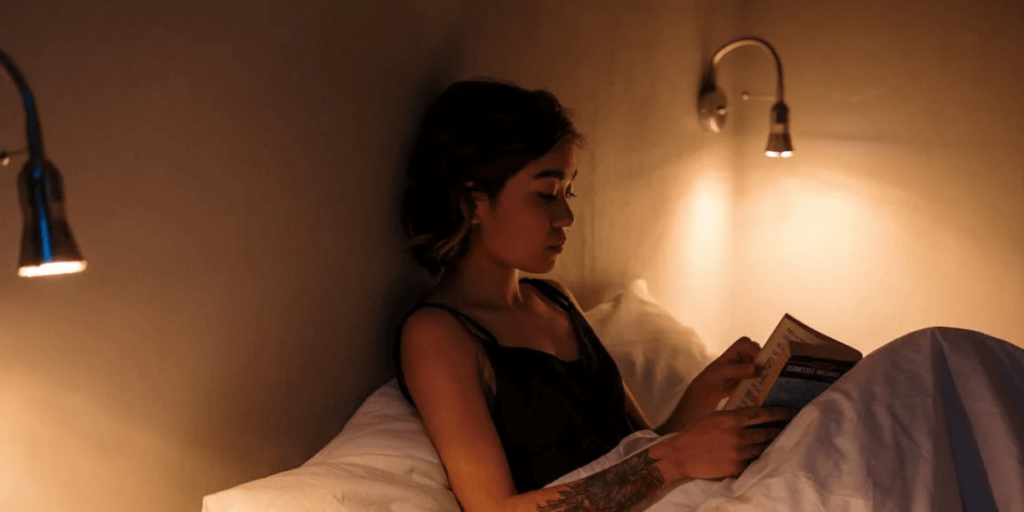
A good clean sleep environment can promote sleeping faster and soundly. Keeping the area organized and reducing any distractions can be beneficial. Some key factors to look at while optimizing the sleep environment are:
- Managing Light Exposure to let your body know it is time to sleep
- Make sure you have a comfortable mattress, pillow, and linens to fall back into after your busy day.
- Keeping a suitable bedroom temperature between 60-67 degrees Fahrenheit.
- You can consider using a good pair of earbuds and eye masks to keep yourself away from any light or sound disturbance.
6. Setting Boundaries Between Sleep time and Wake time
Setting good boundaries between sleep time and wake time can help maintain sleep hygiene. Keep any activities such as reading books, using a cell phone, watching television, or playing board games away from the bed.
Make sure the bed is only used for sleeping. This phenomenon can build a healthy boundary from designation your body’s purpose in bed to only falling asleep.
7. Manage your daily stress before sleeping
Stress reduction techniques such as Mindfulness and Meditation can be implemented before sleeping. Such practice can help you release any overwhelming thoughts, ideas, or experiences from your mind helping you get into the unconscious mode easily.
Practicing Mindfulness and meditation not only promotes sleep hygiene but also improves the quality and duration of sleep.
8. Do Not Stay Awake in Bed
This might sound counterintuitive. Do not keep lying in bed if you are not feeling sleepy or can’t sleep. You can try activities such as gentle stretches and meditation to help you promote sleep. Staying awake in bed wondering why you can’t fall asleep will only help you get the memory revision from your daytime experiences creating mind clutter.
9. Avoid Napping During the Daytime
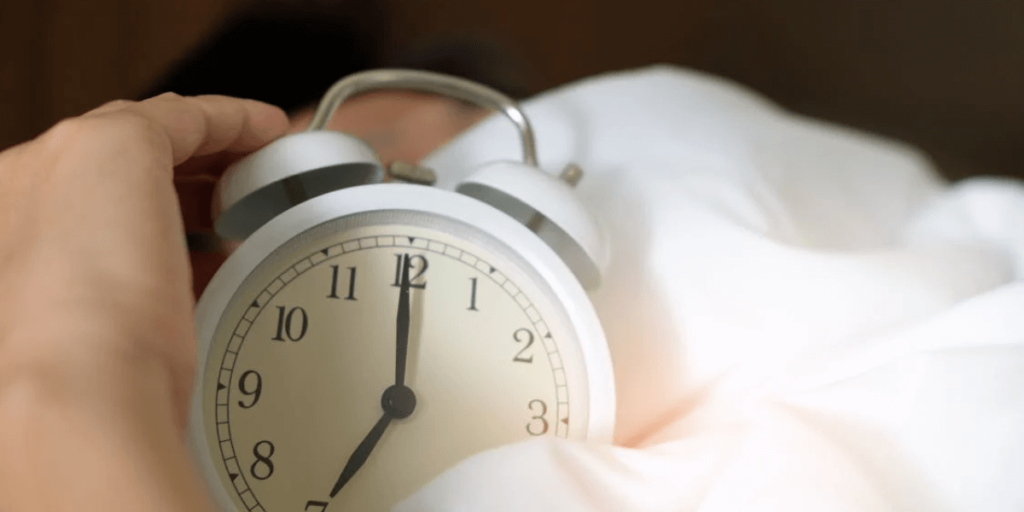
Unwanted sleep during the daytime can cause disturbance in maintaining sleep hygiene. Apart from any short nap, evening naps are sleep killers. Avoid taking naps late evening and be patient while committing to Sleep Hygiene habits.
10. Daily Lifestyle Habits
Daily lifestyle habits according to the needs of your body can also be the underlying boosters for a good night’s sleep. You can look out for improving these factors if you are not already.
- Drinking plenty of water to get rid of any toxins from your body
- Daily exposure to sunlight increases melatonin release during sleep
- Consuming enough fiber and fruits to keep your digestive system organized
- When in need of treatment in case of symptoms of sleep disorder, keep a daily checkup with your doctor.
Conclusion
This time you might want to cancel that late-night party that your boss might be offering you. This time your relationship at night should improve with your bed. Sleep Hygiene is nothing more than keeping a consistent schedule that better suits your lifestyle. Sticking to a consistent schedule may create overall discipline in your life promoting a better wake time as well as sleep time.
